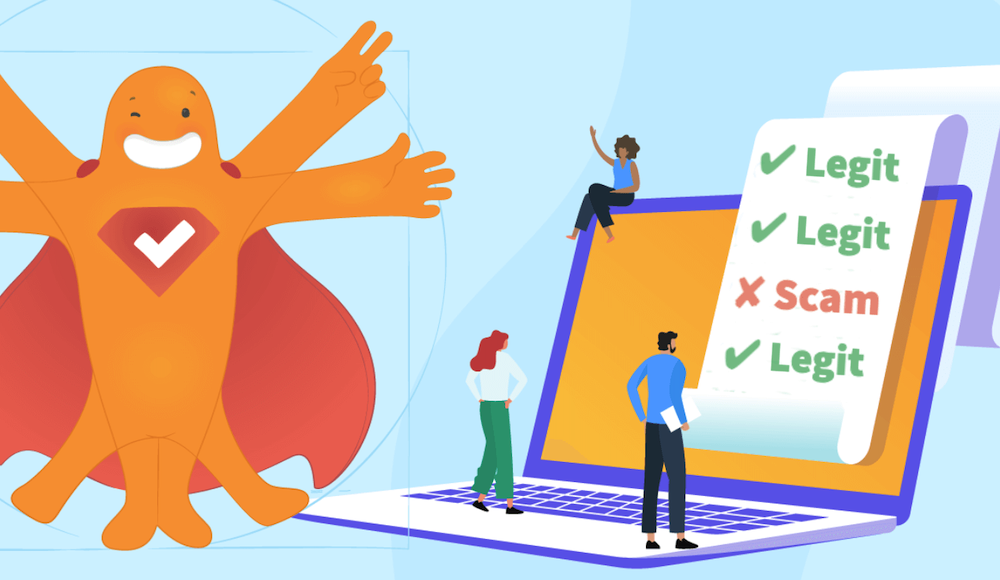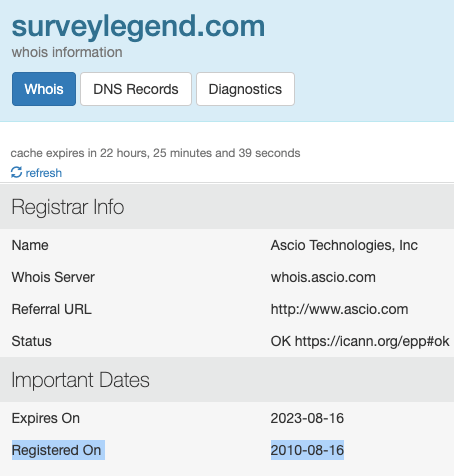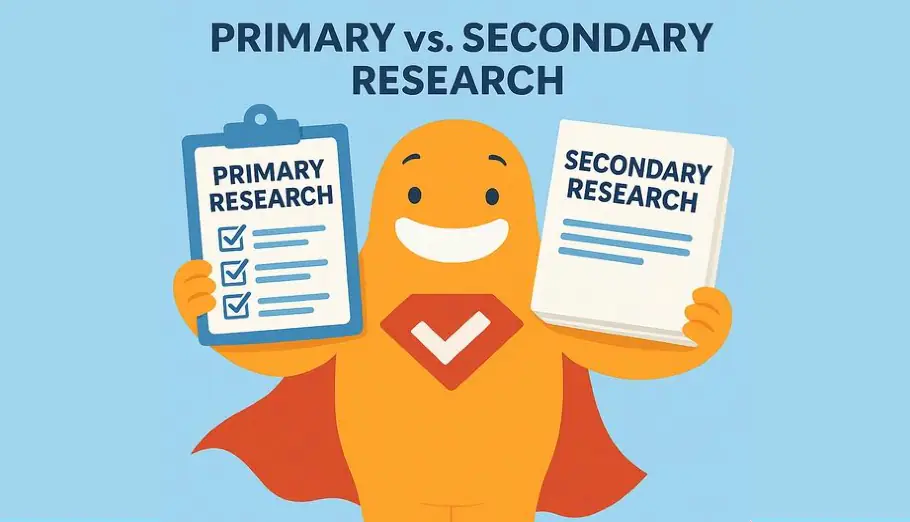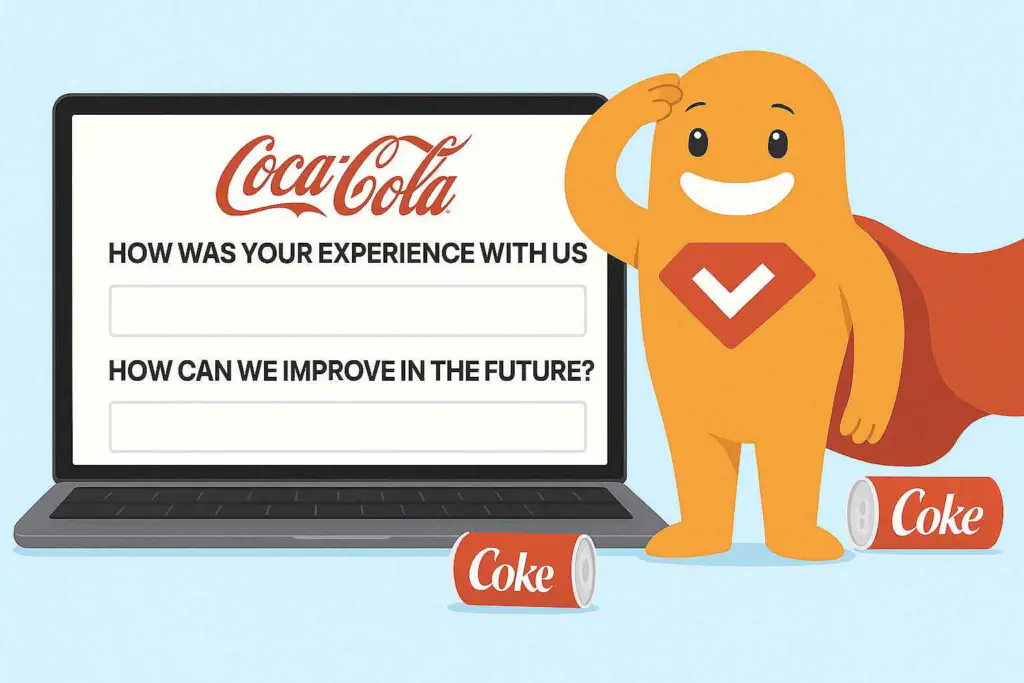Are online surveys legit? It’s a fair question. While there are many reputable online survey companies, there are also scammers looking to harm people or businesses in one way or another. Because of this, some people may hesitate to participate in an online survey, lowering response rates. In this blog, we highlight survey scams online and how to spot them. We’ll also show you why using SurveyLegend to conduct your surveys will put people at ease allowing you to collect the feedback and data you need!
Create legitimate surveys that get high response rates with SurveyLegend now!
What is a Survey Scam?
An online survey scam is delivered through email, webpages, or digital ads, or as a text message via phone. To get people to take the bait, scammers will typically inform potential victims that completing the survey will earn them rewards, such as a sweepstakes entry (often for a trip or cash prize), a popular product (such as an iPhone), or an online survey gift card.
Types of Online Survey Scams
Online survey scams can vary greatly depending on the nature of the scam, the target, and the attacker’s specific goals.
Identity Theft Scams
Typically, online survey scams are designed to collect the personal information of potential victims. Once a fraudster has this information, they may sell it to others on the dark web. They may also use it for their own identity theft schemes. For example, depending on the information they have gathered, they could sign up for new credit cards or loans, racking up tens of thousands of dollars in damages for each identity stolen.
Money Theft Scams
Some online survey scams are simply designed to steal someone’s money outright. For example, some paid survey scams may ask for payment for a useless “survey training kit” or a fee for “membership” of a club that promises to get you signed up for a lot of upcoming paid surveys. In reality, of course, it does not.
Advance fee scams are also popular; these scams will send a fake payment check for taking part in the survey, and then ask the victim to wire part of their “payment” to someone else. By the time the victim realizes the check was fake, they’ve already sent their legitimate payment to the fraudster.
Personality Quiz Scams
It’s human nature to want to learn about ourselves. So, some scammers create phony online personality quizzes that may ask questions like, “What’s your favorite food?”, “What is your dream car?”, or “What is your favorite travel destination?”. These questions tend to be common identity verification questions used by websites. With the answers to these questions, scammers can force password resets and gain access to victims’ online accounts. Then, they may defraud the victim of money, use services the victim paid for without their knowledge, or commit identity theft.
Spam Scams
Some scams are simply designed to bombard you with offers, i.e. spamming. In exchange for some personal information (e.g., income level, education level, number of people in your household, and so on) the scammer will promise a list of paid surveys. After you complete the form, you won’t get the list but you will get bombarded with offers and solicitations from other marketing companies to which they sold your details.
Business Compromise Scams
Other online survey scams may have a goal of harming a business. Scammers will target employees of specific companies, hoping to gather information that matches security questions. Using the stolen credentials, a fraudster may be able to access confidential company information and commit fraud using the employee’s company account.
7 Ways to Avoid Survey Scams Online
Online scam statistics from the Federal Trade Commission (FTC) reveal that there were over 5.7 million scam reports in 2021, 49% for fraud and 25% for identity theft. Here are some things to look for to avoid being the victim of an online survey scam (and why SurveyLegend makes an ideal survey tool that you can trust).
1. Offering a Lot for a Little
You know what they say, if it’s too good to be true, it probably is. So, if a survey is offering $300 for 10 minutes of your time, you should probably raise an eyebrow. According to Zip Recruiter, the average hourly pay for an online survey taker in the United States is $25.95 an hour. For the big bucks, you’ll typically need to meet with someone for an offline interview or focus group.
With SurveyLegend, it’s up to survey makers to determine whether to use incentives or not. If you’re creating a survey with SurveyLegend, we recommend survey incentives are not outrageous to avoid people thinking it’s a scam.
2. There’s No Company Name
If a marketing or survey company is legitimate, they’re going to feature their name or logo on any survey. And while a name or logo is no guarantee of legitimacy (scammers are known to impersonate them anyhow), if there is no name at all it’s a definite red flag.
With SurveyLegend, you can include your company logo or brand name at the top of each survey. If you like, surveys can also state that they are “proudly made with SurveyLegend” so participants can easily check out our website for legitimacy. In the example below, you’ll see both “GreatTV” and “SurveyLegend” branding.
 3. There is No Company Information or “About” Page
3. There is No Company Information or “About” Page
Legitimate businesses will offer some form of contact besides a generic email address. This could be included in the email or ad, or at least found on the company website when you Google their name. If you cannot find this, be careful about what information you provide as it may be an online survey scam.
SurveyLegend’s website has both an About page and a Contact Us page to put participants at ease.
4. The Domain is New
Fraudsters can only operate a shady website for so long before online searches of the site reveal people’s bad experiences/fraud. Once that happens, they create a new one to “reset.” So how can you tell if a domain is new? Easy! Go to WHOis.net and you can see who owns a domain and when it was registered.
Searching for SurveyLegend at WHOis.net reveals that our domain has been registered since 2010, showing longevity and legitimacy.
5. There is No Privacy Policy
We mentioned in “spam scams” how some fraudsters will collect personal information and then you never hear from them again. Just because you didn’t hear from them doesn’t mean the information wasn’t sold to marketing companies. To be sure this doesn’t happen, always check the survey company’s privacy policy on its website. If no privacy policy exists, don’t divulge any personal information.
SurveyLegend’s Privacy Policy is clearly stated on our website, along with our awards, security certificates, and more.
6. The Email Comes From a Free Account
Although not every company with a free Gmail address is out to scam you, it can still be a warning sign. A reputable company will generally have their name in the email address so that recipients can check for legitimacy.
Also, be sure to look closely at the address. Some scammers will impersonate a legitimate company’s email address by changing something, for example, using an underscore where there shouldn’t be one (wal_mart.com) or using the wrong characters, such as two V’s to make a W (vvalmart.com) which looks legitimate at a glance.
With SurveyLegend, you can include the link to your survey in an email from your own business account.
7. The Survey Gets Too Personal
Many surveys need to understand who the participant is, asking a series of demographic questions. However, if the survey gets too personal it could be a phishing survey.
Phishing surveys often appear as display ads on websites and in social news feeds. Once you click and begin to fill out the survey, the form may require your username, social security number, credit card details, and passwords. These are definite red flags; legit online surveys will never ask you for sensitive information.
With SurveyLegend, questions are only as personal as you make them. You can also allow people to answer a survey anonymously.
Conclusion
Online surveys are a popular market research tool used by many companies because they’re fast, easy, and inexpensive to conduct. Unfortunately, scammers also love online surveys because it can be easy to trick people into handing over money or personal information.
If you’re participating in an online survey, be sure to consider the seven warning signs we have highlighted in this blog. And, if you’re creating a survey, be sure to consider SurveyLegend. Our surveys are well-known across the web, and our website and history lends legitimacy to every survey you send!
Have you ever been the victim of an internet scam? Or, do you regularly send surveys but worry someone may think they are a scam? Let us know your experiences in the comments!
Create a legitimate surveys that get high response rates with SurveyLegend now!
Frequently Asked Questions (FAQs)
An online survey scam is delivered digitally. It asks people to complete a survey, usually with the promise of a reward. Rather than receiving a reward, participants can become victims of identity theft or may be duped out of money.
There are many reputable online surveys, but as with everything, there are always scammers looking to take advantage of things. Understanding online survey scam warning signs will allow you to take online surveys while avoiding online scams.
Well-known across the web and with a history dating back to 2010, SurveyLegend is a legitimate and reputable site on which to create online surveys. If you’re looking for a legitimate paid survey site that allows you to earn money, we recommend L&E Research.
The top seven warning signs are surveys offering huge payouts, questions that are too personal, surveys without a company name, no legitimate website to refer to, no privacy policy on the website, a recently registered domain, and surveys sent through free email accounts.





